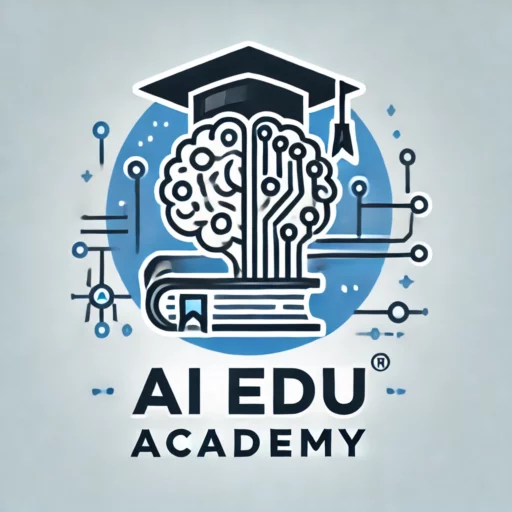Artificial intelligence (AI) continues to redefine the business landscape, offering innovative solutions that drive efficiency, productivity, and growth. As we progress into 2025, the integration of AI into business operations is no longer optional—it is essential for staying competitive in an increasingly tech-driven world. Whether you’re exploring small business ideas or scaling an established enterprise, understanding the potential of AI-powered solutions is key to unlocking new opportunities.
AI technology empowers businesses to optimize processes, enhance decision-making, and deliver personalized customer experiences. From marketing automation to advanced analytics, the applications of AI are vast and versatile. This article delves into how AI-powered solutions are shaping the future of business, providing actionable insights for leveraging this transformative technology.
Revolutionizing Marketing with AI
Marketing is one of the most prominent areas where AI is making a significant impact. AI-powered tools analyze customer data, predict behavior, and enable businesses to deliver hyper-personalized content.
For example, digital marketing strategies now heavily rely on AI to segment audiences, automate campaigns, and track performance. Predictive analytics, powered by AI, helps marketers understand customer preferences, allowing them to create targeted campaigns that resonate with their audience.
AI tools like chatbots and virtual assistants enhance customer interactions by providing instant support and resolving queries. These tools operate 24/7, ensuring uninterrupted customer service, which is crucial for online businesses aiming to cater to a global audience.
AI in Business Operations
AI has transformed the way businesses operate, streamlining processes and reducing costs. Tasks that once required significant human effort can now be automated, enabling companies to focus on strategic initiatives.
For instance, AI-powered inventory management systems use real-time data to optimize stock levels, reducing waste and improving efficiency. Businesses exploring AI and automation can also leverage robotic process automation (RPA) to handle repetitive tasks like data entry and invoice processing, freeing up employees for higher-value work.
Moreover, AI-driven tools for AI in business operations help organizations monitor performance, identify inefficiencies, and implement data-driven solutions. These tools improve decision-making and enable businesses to adapt quickly to changing market dynamics.

Enhancing Customer Experiences
Customer experience is a critical differentiator in today’s competitive landscape. AI-powered solutions enable businesses to deliver seamless and personalized experiences that foster loyalty and satisfaction.
Recommendation engines, for example, use machine learning algorithms to analyze customer preferences and suggest products or services tailored to their needs. This technology is particularly beneficial for e-commerce businesses looking to boost sales and improve customer retention.
Additionally, natural language processing (NLP) tools analyze customer feedback from multiple channels, helping businesses understand sentiments and identify areas for improvement. AI-powered sentiment analysis tools can also detect emerging trends, allowing companies to adjust their strategies proactively.
AI in Financial Management
AI is revolutionizing financial management by automating complex tasks and improving accuracy. Businesses can use AI-powered accounting software to handle payroll, tax calculations, and expense tracking with minimal human intervention.
Fraud detection systems, powered by AI, monitor transactions in real time, identifying suspicious activities and reducing financial risks. For startups and established businesses alike, these solutions are invaluable for maintaining trust and ensuring compliance with regulations.
Companies exploring tech-driven trends can also utilize AI for financial forecasting. By analyzing historical data and current market conditions, AI tools provide accurate predictions that guide investment and budgeting decisions.
The Role of AI in Human Resources
AI is reshaping human resource management, from recruitment to employee engagement. AI-powered recruitment tools analyze resumes, identify top candidates, and even conduct initial interviews, saving time and resources for HR teams.
Employee engagement platforms, driven by AI, offer personalized recommendations for training and development, ensuring that employees have the skills needed to thrive. Additionally, AI-powered sentiment analysis helps HR managers gauge employee satisfaction and address concerns proactively.
Businesses aiming to grow in line with future industry insights can leverage AI-driven tools to build a motivated and skilled workforce, positioning themselves for long-term success.
AI-Driven Innovations in Product Development
AI accelerates product development by enabling businesses to analyze market trends, gather customer feedback, and identify gaps in the market. Machine learning algorithms process vast amounts of data, offering insights that guide product design and feature enhancements.
For example, AI-powered prototyping tools allow businesses to simulate and test products in virtual environments, reducing development costs and time to market. These innovations are particularly relevant for startup growth strategies aiming to disrupt industries with innovative offerings.
Sustainable Business Practices with AI
Sustainability is a growing priority for businesses, and AI plays a pivotal role in achieving environmental goals. AI-powered tools optimize energy consumption, reduce waste, and streamline supply chains, contributing to a greener planet.
For instance, businesses focusing on sustainable businesses can use AI-driven analytics to monitor their carbon footprint and implement eco-friendly practices. Predictive maintenance, powered by AI, ensures that machinery operates efficiently, minimizing downtime and energy consumption.
Overcoming Challenges in AI Implementation
While the benefits of AI are undeniable, implementing this technology comes with challenges. Businesses must address issues such as data privacy, ethical concerns, and the cost of AI solutions.
To overcome these challenges, organizations should:
- Invest in employee training to build AI-related skills.
- Collaborate with technology providers to ensure seamless integration.
- Develop clear policies for data usage and security.
Companies exploring AI technologies tools must also prioritize transparency and accountability, ensuring that AI systems operate ethically and responsibly.
Conclusion
AI-powered business solutions are transforming industries and opening new avenues for growth and innovation. From marketing and operations to customer experience and sustainability, AI is driving efficiency and delivering value across every aspect of business.
As we navigate 2025, businesses must embrace AI to stay competitive and meet evolving customer expectations. By exploring emerging business trends and leveraging AI-driven tools, organizations can achieve remarkable outcomes, positioning themselves as leaders in their respective markets.

